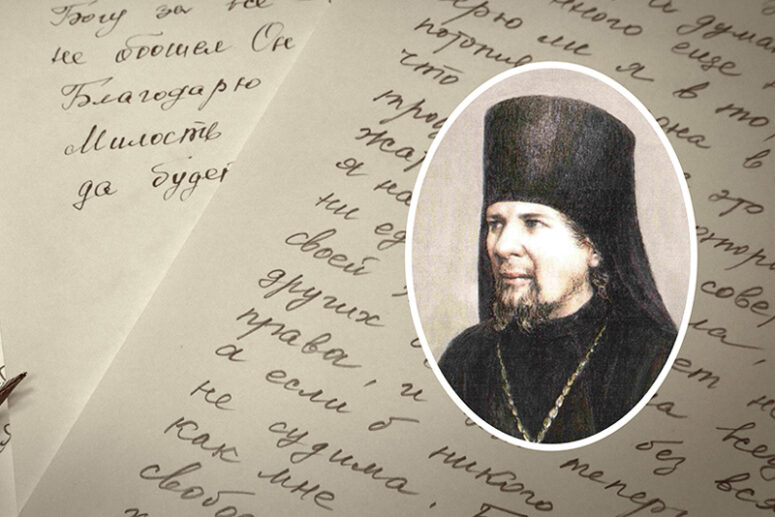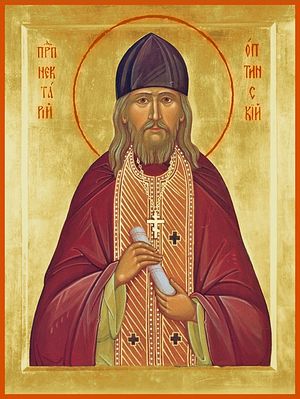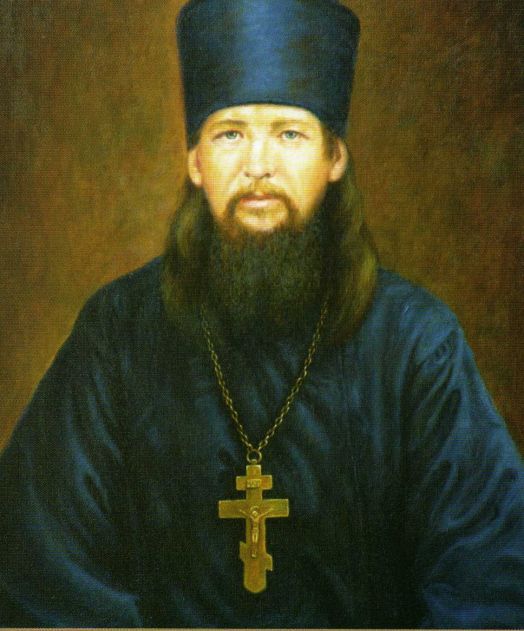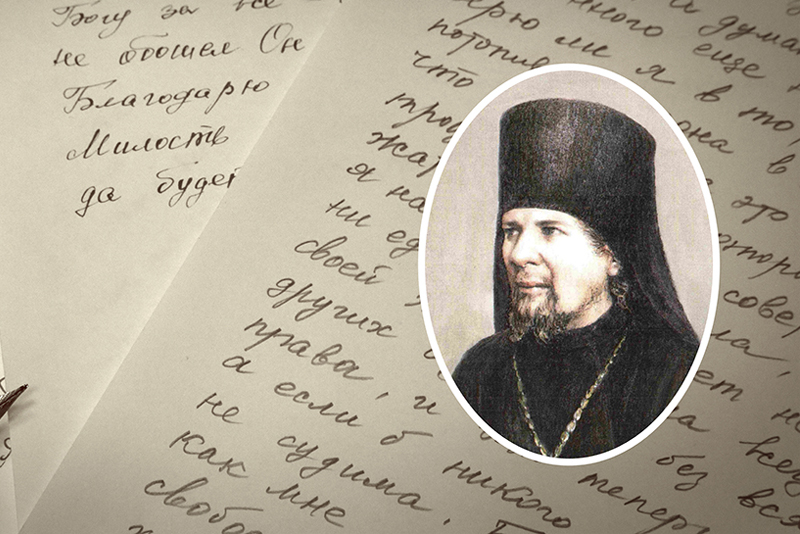
The Venerable Nectarios (1853 – 1928) was the last of the Great Optina Elders. The story of his life amazes the reader with the elder’s spiritual depth, humble obedience, fatherly love to his spiritual children and his far-sightedness, which often appeared to others as madness. The Orthodox Church commemorates Saint Nectarios of Optina on 12 May. In this piece, we share with you several stories from the saint’s life and some of his best-known teachings. They were narrated by his spiritual child, poet Nadezhda Pavlovich and relate to the last seven years of his life. Hopefully, this narrative will give you answers to some of your questions or concerns.

The Church and salvation
Once, I asked the elder,
“Can we hope that someday all the Christian churches will become united?
“Definitely not.
– An ecumenical council could do it, but there will be no more councils held. There have already been seven councils, same as the number of the Holy Sacraments and gifts of the Holy Spirit. For the present age, seven is the final number. For the age to come, the final number is eight. People will be joining our church only as individuals.
* * *
The elder also commented on salvation and the last days. “The world will be wrapped in iron and paper. In the times of Noah, the great flood was approaching. Noah knew about it and told all the people, but they did not believe him. He hired some labourers to build the boat. They did their job but did not believe in the flood. They got their pay, but not salvation. Noah’s days are reminiscent of our times. The arc is the Church. Only the churched will be saved.
* * *
The Lord wishes to save whole peoples, and also every individual soul. A simple Hindu who believes in the Almighty and does His will to the best of his ability will find salvation. But someone who knows of Christ but still follows the mystical ways of Hinduism will not.
“But what about the other Christian denominations, Father? Will they be saved?”
“They will not,” he replied.
“But how about the Catholic saints,” I countered, with some indignation.
– “Saint Francis of Assisi, for example? Are you suggesting that they have none of His blessings?”
The elder replied, reluctantly,
“They have His partial blessing.”

The truth about being an elder
Being an elder is a formidable burden. Carrying it on one’s shoulders is beyond the powers of an ordinary person. An elder is popular among the people, but he is also expected to meet high expectations. People interpret his every action symbolically and figuratively. When treated people to some candy, many cried. The elder did not mean anything, but people were thinking, “if he is giving me a sweet, I must be heading for some sorrows.” I saw it with my own eyes. He gave me sweets on many occasions, but I never experienced any grief after the event. Such a superstitious perception of his action frustrated him. He often said,
“Sometimes, I have an intuition about a person, and other times not. Here is a good example. A woman came to me complaining about his nine-year-old son and his unmanageable behaviour. I said to her, “Have patience. Wait until he turns twelve”. I had no intuitions when I said this. I only knew from the sciences that children’s personalities change at this age. The woman left, and I forgot about our meeting completely. Three years later, his mother came to me again in mourning. Her son died shortly after his twelfth birthday. People might suggest that I had predicted it. But I did not, I was simply reasoning, based on what I knew from the sciences. After that incident, I questioned myself many times if I had any idea that this might happen. I knew that I did not.”
* * *
Once I asked the elder if he felt obliged to shoulder the torments and transgressions of the people to reassure and comfort them. He replied,
“Certainly. As you seem to understand it very well yourself, let me just say that there is no other way to bring relief to these people. People bring me so many of their griefs and transgressions that I sometimes feel like I was carrying a pile of heavy stones on my back, and was falling under it. Then I receive His grace, and it blows away this pile of stones like fallen leaves, and I can take upon myself a new pile of stones.
Blessing and obedience
Hearing the following story was a sobering experience. Soon after Christmas, I departed from Optina to Moscow. In my presence, a nun had asked the elder for his blessing to bring her blind sister staying in a Moscow almshouse. The elder declined. Instead, he asked me to visit her, deliver a packet from the nun and ask a priest he knew to commune the blind woman. I visited her in the almshouse. She looked frail and fatigued. I said the name of Father Nectarios, and she was horrified. I did my best to reassure her and told her that a priest would visit her soon and commune her. When I returned to Optina, Elder Nectarios said
“She asked me twice what she should do next. I advised her to join a monastery, but she did not listen. She became blind.
Then he turned towards the nun, the blind woman’s sister and added,
“She will die soon, but before that vision will return to her, and she will spend her last days well. And they will give her a most dignified burial when she dies,
Everything happened as he had predicted.

Attitude to artistic expression
When artists came to him, the elder said to them,
“It is possible to practise art like some do woodwork and graze cattle. But you must always do your work mindful of God’s perpetual presence.
“Love the meadows of the earth, but do not forget about those in heaven”.
“Some will become great artists, and their world will wield the power to kill and resurrect. Getting there always demands self-sacrifice and asceticism, and only one of many thousands will succeed.”
“Pushkin was the cleverest man in Russia, but even he could not live his life well.”
“All the verses in the world are not worth a single line from the Holy Scripture.”
Prepared by Anastasia Parkhomchik
Source: https://svyatye.com/chitat/Besedy-velikikh-russkikh-startsev-Prepodobnyi-Nektarii-Optinskii/




